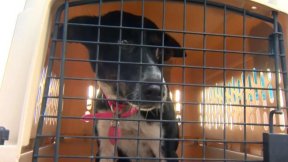
Alderman Raymond Lopez (15) on Friday reiterated his call for sweeping reform of the Commission on Animal Care and Control (CACC), citing reports of gross overcrowding at City kennels, leading to inhumane conditions for animals. “According to an email CACC sent to various partners there are 225 brick and mortar kennels in the CACC facility, and some 285 dogs,” said Ald. Lopez. “Ideally every dog, no matter what size, should have their own kennel. There are currently 451 animals in the building. This number is far too high.” Ald. Lopez also urged Chicagoans considering fostering or adopting dogs to consider a rescue from CACC. “Even Chicago residents looking for a specific type of dog may find success at CACC–just contact the facility and let them know,” he said. “These animals need relief from overcrowding today.”

Ald. Lopez, who with his husband has seven pet dogs, introduced a package of CACC reforms last year along with Ald. Ed Burke (14) and 26 other cosponsors. That ordinance proposed cracking down on backyard breeders; limiting breeding in Chicago; immediate return policies for pets with valid tags and microchips; simplified point-of-sale for City licenses at vets; capacity-buildings funds for rescue partners; licensing of shelters and requiring that animal statistics be posted publicly; a revised euthanasia policy; a defined expectation of humane treatment for animals within CACC, the reassignment of all duties related to pet licensing from the Office of the City Clerk to the CACC Executive Director; and the requirement of quarterly reports to the City Council by the CACC Executive Director. In 2016, Ald. Lopez introduced a resolution calling for a fresh look at the CACC’s activity based on the notion that the culture of acceptable, state-sanctioned euthanasia has fostered an environment that promotes the inhumane care, treatment and disregard for the animal charges the CACC is mandated to care for.”











